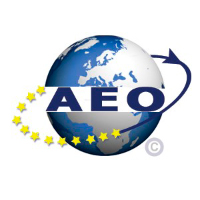International e-commerce has grown exponentially in recent years. However, managing customs and tax procedures, especially VAT, has been a challenge for many merchants and online platforms. To simplify this process, the European Union introduced the IOSS (Import One Stop Shop), a system that facilitates the collection and settlement of VAT on low-value imports. At Grupajes Alicante, we want to explain everything you need to know about what the IOSS is.
What is the IOSS?
The IOSS is a special regime that allows e-commerce businesses to manage VAT on products imported into the European Union in a simplified manner. This regime applies to shipments valued at less than 150 euros, which are exempt from customs duties. Before the implementation of this system, buyers had to pay VAT at customs when receiving the products, which caused delays and added complexity to the process.
With the IOSS, the seller or e-commerce platform collects VAT at the time of purchase and declares it periodically in the Member State where they are registered. This way, the buyer does not have to worry about additional charges or procedures when receiving their order.
Benefits for Businesses and Consumers
- Administrative Simplification: The IOSS significantly reduces the administrative burden for businesses, as it allows them to register all their sales in a single Member State, rather than in each destination country. This results in less bureaucracy and makes it easier to comply with tax obligations.
- Improved Customer Experience: For consumers, this system brings transparency to the final price of the product. Knowing that all taxes are included upfront eliminates unpleasant surprises when the order is received. Additionally, the delivery process is faster, as customs clearance is simplified.
- Competitiveness in the International Market: Cross-border e-commerce becomes more attractive to merchants thanks to the ease of accessing European markets without having to deal with complex customs procedures. This allows them to compete more effectively in a globalized market, offering a smoother shopping experience.
Specifics of the IOSS Regime
- Voluntary Application: Businesses are not required to use the IOSS, but those that adopt it can offer a more efficient purchasing process without additional tax barriers. This is especially relevant for small and medium-sized enterprises looking to expand internationally without major complications.
- Covered Products: It only applies to physical products valued at less than 150 euros and not subject to excise duties (such as alcohol or tobacco). If the products exceed this value, or the recipient is a VAT-registered professional, the IOSS does not apply.
- VAT Exemption on Import: One of the key advantages of the IOSS is that, by paying VAT at the time of purchase, goods are exempt from paying this tax at customs. This speeds up the process and avoids delivery delays.
Implementation of the IOSS in E-commerce
Since its introduction in July 2021, the IOSS has allowed e-commerce platforms and sellers to better manage their operations in Europe. Through this system, collected VAT is declared monthly in a single Member State, from which the tax is distributed to the destination countries of the sales. This system is especially useful for large e-commerce platforms that handle thousands of daily transactions to various European destinations.
How the IOSS Affects Logistics
For companies like Grupajes Alicante, specialized in import and export management, the IOSS is a significant advancement. The reduction in the administrative burden regarding VAT management translates into greater efficiency in customs clearance and product distribution. Additionally, with this regime, logistics companies can offer their clients faster and hassle-free delivery.
Likewise, the IOSS improves visibility and control over shipments, as it makes it easier to identify products subject to the regime, optimizing logistical planning and reducing transit times.
The Future of Cross-border Trade with the IOSS
The IOSS represents an important step towards the modernization of cross-border trade in the EU. As more businesses adopt this system, we will see increased consumer confidence in international purchases and greater competitiveness among online sellers. For logistics companies, this means adapting to a new reality where agility in customs clearance and transparency in the process are essential to ensuring e-commerce success.
Conclusion
The IOSS has simplified cross-border trade in Europe, offering benefits to both sellers and consumers. By efficiently managing VAT and reducing the administrative burden, this system fosters the growth of e-commerce and enhances the shopping experience. At Grupajes Alicante, we understand the importance of adapting to these changes, providing logistics services that meet the needs of our clients in this new digital environment.




